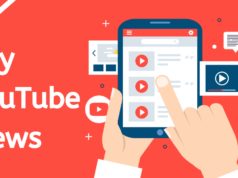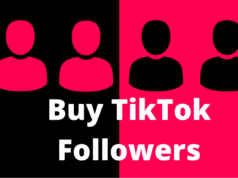
 You can write a graceful novel like Gabriel Garcia Marquez; you can compose a soulful ballad like John Lennon; you can cut an unforgettable logo like Chip Kidd — but none of those skills mean anything unless you can sell them like a marketing genius.
You can write a graceful novel like Gabriel Garcia Marquez; you can compose a soulful ballad like John Lennon; you can cut an unforgettable logo like Chip Kidd — but none of those skills mean anything unless you can sell them like a marketing genius.
Fortunately, it doesn’t take much to market effectively. Unfortunately, it usually takes quite a bit of cash. The self-employed rarely have the energy, time, or finances to support large-scale promotional endeavors, but that doesn’t mean they can’t learn to be effective marketing gurus on a budget. Here’s how you can pick up a practical skill that will benefit you — no matter what outstanding talent you have or which legendary star made it famous.
Learn From the Best
An education is never free, but you can find ways to make it low-cost. The Web is filled to bursting with information from humanity’s best and brightest, and subscribing to a few renowned marking blogs may put you on the path to success. However, it is important to remember that the Internet also attracts the not-so-good and not-so-bright, so you might want to learn lessons carefully.
Additionally, if you have a group of like-minded marketing neophytes — perhaps a group of self-employeds in your area — you might all chip in to hire an industry-recognized expert from Leading Authorities to speak on the topic. This way, you can trust any information you receive and you can make a valuable marketing connection, to boot.
Go Native
Native advertising is the biggest trend in modern marketing — and the best part is it is nearly free. The goal of native advertising is to promote a brand (including products and services) to an audience without interrupting the audience’s experience. For instance, commercial advertisements are not native ads: They intrude on scheduled programming to watchers’ dismay. Conversely, paid articles called advertorials regularly appear in newspapers and magazines unbeknownst to most readers; thus, the content does not disrupt their enjoyment of their periodicals. Most popular websites, including social media like Facebook and Pinterest, offer native advertising spots for small fees.
If you don’t have the cash to spare for sponsored spots, you can go native with content marketing instead of advertising. Creating and distributing content is much more energy-intensive than paying for advertising space because you must earn any and all attention you want. However, by creating your own content, you can spread farther around the Web and the real world. For example, some companies have taken native a step closer to primitive with advertising in street murals and sidewalk chalk, and such simple art supplies are especially cheap.
 Reduce, Reuse, Recycle
Reduce, Reuse, Recycle
If you do decide to enter the content marketing game, you would do well to spend time producing large, high-quality works instead of minute social media snippets. Though it takes longer and is harder to create, big content pays off in the endless ways you can reuse it in the future. A single e-book, for example, can be cut up, mixed, freshened, and rewired to produce:
- Blog posts
- Guest posts
- Social media updates
- Infographics
- Slideshows
- Webinars
- Videos
- Podcasts
- And more!
Each new product takes minimal retooling to generate because you already did the hard research and creativity work for your e-book. Thus, you can complete your marketing efforts for most of the year with one piece of content.
Engage With Customers
The best customers are the ones who come back, and much modern marketing is focused on building an ever-present audience. Fortunately, garnering a gaggle of loyal followers can carry no-cost whatsoever, as long as your customer service is on-point. Your goal should be to develop a two-way relationship with your customers, and you can do so in the following ways:
- Be genuine.
- Be enthusiastic.
- Listen more than you talk.
- Follow up.
Make Friends
In addition to the relationships you build with your customers, you should foster good-will among fellows in your industry. Cultivating relationships with important entrepreneurs in your area is abundantly beneficial: For one, networking is never negative, and for another, you can work as a unit to generate buzz among potential customers, perhaps collaborating on content creation. Plus, industry partnerships can lead to other cost-cutting advantages, like discounts on certain products and services. You can never have too many friends, especially when you are self-employed.








